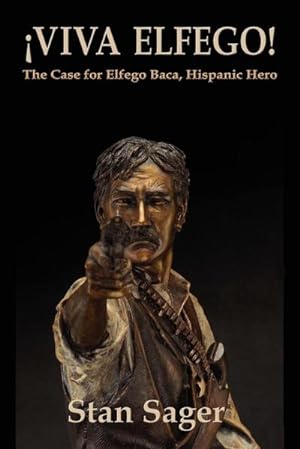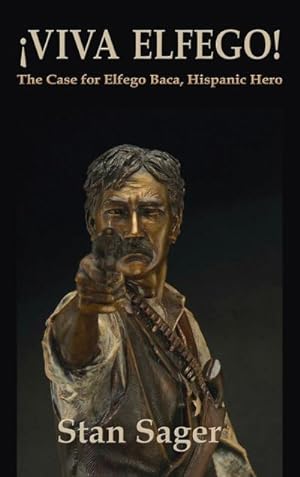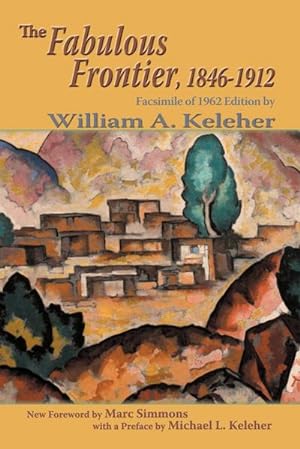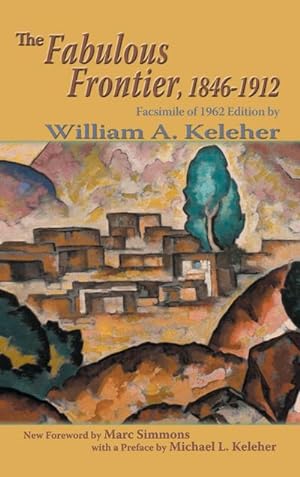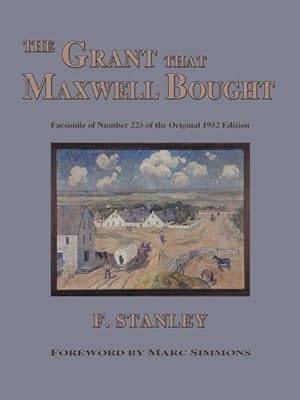sunstone press mrz 2008 (6 results)
Product Type
- All Product Types
- Books (6)
- Magazines & Periodicals
- Comics
- Sheet Music
- Art, Prints & Posters
- Photographs
- Maps
-
Manuscripts &
Paper Collectibles
Condition
- All Conditions
- New
- Used
Binding
Collectible Attributes
- First Edition
- Signed (1)
- Dust Jacket
- Seller-Supplied Images
- Not Printed On Demand
Seller Location
Seller Rating
-
Ma Frump's Cultural Guide to Plastic Gardening
Published by Sunstone Press Mrz 2008, 2008
ISBN 10: 0865346119ISBN 13: 9780865346116
Seller: BuchWeltWeit Ludwig Meier e.K., Bergisch Gladbach, Germany
Book Print on Demand
Taschenbuch. Condition: Neu. This item is printed on demand - it takes 3-4 days longer - Neuware -Do you want to spend less time gardening Are you looking for ways to save water Have you been disappointed in the way your garden turned out Do you dread the dull winter months Do you understand the true meaning of 'garden loveliness' Do you want people to stop by your garden and exclaim in surprise and wonder at what they see Ma Frump has colorful answers to these questions and many helpful suggestions that will make you a happy gardener wherever you live and in all seasons of the year. MARCIA MUTH is an American folk artist. She was born in Fort Wayne, Indiana in 1919 and grew up in Indiana and western New York State. She received degrees from the University of Michigan and lives in Santa Fe, New Mexico. Her work is in private and public collections including The Jewish Museum (New York), The Albuquerque Museum, Museum of Fine Arts (Santa Fe) and the Art Museum of Southeast Texas (Beaumont). She is the author of thirteen books including 'A World Set Apart, Memory Paintings.' 64 pp. Englisch.
-
Viva Elfego
Published by Sunstone Press Mrz 2008, 2008
ISBN 10: 0865346089ISBN 13: 9780865346086
Seller: BuchWeltWeit Ludwig Meier e.K., Bergisch Gladbach, Germany
Book Print on Demand
Taschenbuch. Condition: Neu. This item is printed on demand - it takes 3-4 days longer - Neuware -'I will show them there is at least one Mexican in the country who is not afraid of a Texas cowboy.' Having drawn the line, teenager Elfego Baca backed up his words with his six guns. Nobody, but nobody, even Texans, would any longer subject the peaceful Mexican settlers of the New Mexico frontier to abuse, mutilation or humiliation. It took Baca just thirty-six hours in the fall of 1884 to earn his reputation as savior of the Hispanics of the Territory of New Mexico. When the gun-smoke had blown away, the eighty Texans who had poured over 4,000 bullets and a few charges of dynamite into the hut where the teen had taken refuge, toasted his survival with drinks at Milligan's Whiskey Bar. In the sixty years that followed, Elfego made himself into a lawyer often known for sleaze, a politician suspected of dealing under the table, a guy who liked his liquor too much, a bankrupt, and the object of a $30,000 reward by Pancho Villa. But why Why did the hero fall from grace Stan Sager has laid out the reasons for Baca's heroism and why he later destroyed his own reputation. Sager's book looks into the hero's childhood in Kansas to find the roots of both his valor and his vulnerability. It tells of the events of his young manhood that made it necessary for the kid who grew up in Topeka speaking English only, to fit himself into the Spanish-speaking community of Socorro the only way he knew how--by bravado and bluster. It relates the bizarre activities that led him to lose his reputation as a hero. And finally, it explains why the hero self-destructed, and it pleas for his forgiveness. 280 pp. Englisch.
-
Viva Elfego
Published by Sunstone Press Mrz 2008, 2008
ISBN 10: 1632934981ISBN 13: 9781632934987
Seller: BuchWeltWeit Ludwig Meier e.K., Bergisch Gladbach, Germany
Book Print on Demand
Buch. Condition: Neu. This item is printed on demand - it takes 3-4 days longer - Neuware -'I will show them there is at least one Mexican in the country who is not afraid of a Texas cowboy.' Having drawn the line, teenager Elfego Baca backed up his words with his six guns. Nobody, but nobody, even Texans, would any longer subject the peaceful Mexican settlers of the New Mexico frontier to abuse, mutilation or humiliation. It took Baca just thirty-six hours in the fall of 1884 to earn his reputation as savior of the Hispanics of the Territory of New Mexico. When the gun-smoke had blown away, the eighty Texans who had poured over 4,000 bullets and a few charges of dynamite into the hut where the teen had taken refuge, toasted his survival with drinks at Milligan's Whiskey Bar. In the sixty years that followed, Elfego made himself into a lawyer often known for sleaze, a politician suspected of dealing under the table, a guy who liked his liquor too much, a bankrupt, and the object of a $30,000 reward by Pancho Villa. But why Why did the hero fall from grace Stan Sager has laid out the reasons for Baca's heroism and why he later destroyed his own reputation. Sager's book looks into the hero's childhood in Kansas to find the roots of both his valor and his vulnerability. It tells of the events of his young manhood that made it necessary for the kid who grew up in Topeka speaking English only, to fit himself into the Spanish-speaking community of Socorro the only way he knew how--by bravado and bluster. It relates the bizarre activities that led him to lose his reputation as a hero. And finally, it explains why the hero self-destructed, and it pleas for his forgiveness. 280 pp. Englisch.
-
The Fabulous Frontier, 1846-1912
Published by Sunstone Press Mrz 2008, 2008
ISBN 10: 0865346208ISBN 13: 9780865346208
Seller: BuchWeltWeit Ludwig Meier e.K., Bergisch Gladbach, Germany
Book Print on Demand
Taschenbuch. Condition: Neu. This item is printed on demand - it takes 3-4 days longer - Neuware -Recapturing the atmosphere of Territorial days, this 1962 extensively annotated edition of a Southwestern classic focuses on southeastern New Mexico, where 'murder was a common offense' and stagecoach robberies were 'nothing to get excited about.' The delineation of this last, lively frontier begins in 1846 and ends in 1912 with New Mexico statehood. Here are the deeds, lives and legends of the colorful men who figure in New Mexico history. The lucky ones: John J. Baxter who struck it rich at White Oaks, Tom Wilson and Uncle Jack Winters of the Homestake claim, Jack Martin who brought water to the Jornada del Muerto and started the desperate struggle among stockmen culminating in the Lincoln County War, and the cattle king John S. Chisum. The land grabbers: Charles B. Eddy, accused of acquiring a county through coercion; the Denman gang dedicated to frightening settlers from their hereditary holdings; and Tom Catron, political boss and land-office man who owned more than a county. Writing men: Washington Matthews, Territorial army surgeon who told about the Navajo; Hubert Bancroft, prolific historian; Adolph Bandelier, pioneer anthropologist; Charles Lummis, the journalist who publicized life in the Territory through travel books; and Lew Wallace, Territorial governor who wrote 'Ben Hur.' The frontier newsmen: 'Ash' Upson, chronicler of Billy the Kid; Major Bill Caffrey of White Oaks' 'Lincoln County Leader'; Emerson Hough who mined his Western experiences for many a yarn; and Eugene Manlove Rhodes, beloved cowboy of the big circulation magazines. New appraisal is given Albert B. Fall, who with Doheny, another old timer, figured in the Teapot Dome affair. Not neglected are such celebrated frontiersmen as Patrick Garrett, nemesis of Billy the Kid, and Albert J. Fountain, who, with his little son, a buckboard and high-stepping team, disappeared from the face of the earth. All these and many more live again in accurate eye-witness accounts that make this a prime source book on the old West. 372 pp. Englisch.
-
The Fabulous Frontier, 1846-1912
Published by Sunstone Press Mrz 2008, 2008
ISBN 10: 1632936216ISBN 13: 9781632936219
Seller: BuchWeltWeit Ludwig Meier e.K., Bergisch Gladbach, Germany
Book Print on Demand
Buch. Condition: Neu. This item is printed on demand - it takes 3-4 days longer - Neuware -Recapturing the atmosphere of Territorial days, this 1962 extensively annotated edition of a Southwestern classic focuses on southeastern New Mexico, where 'murder was a common offense' and stagecoach robberies were 'nothing to get excited about.' The delineation of this last, lively frontier begins in 1846 and ends in 1912 with New Mexico statehood. Here are the deeds, lives and legends of the colorful men who figure in New Mexico history. The lucky ones: John J. Baxter who struck it rich at White Oaks, Tom Wilson and Uncle Jack Winters of the Homestake claim, Jack Martin who brought water to the Jornada del Muerto and started the desperate struggle among stockmen culminating in the Lincoln County War, and the cattle king John S. Chisum. The land grabbers: Charles B. Eddy, accused of acquiring a county through coercion; the Denman gang dedicated to frightening settlers from their hereditary holdings; and Tom Catron, political boss and land-office man who owned more than a county. Writing men: Washington Matthews, Territorial army surgeon who told about the Navajo; Hubert Bancroft, prolific historian; Adolph Bandelier, pioneer anthropologist; Charles Lummis, the journalist who publicized life in the Territory through travel books; and Lew Wallace, Territorial governor who wrote 'Ben Hur.' The frontier newsmen: 'Ash' Upson, chronicler of Billy the Kid; Major Bill Caffrey of White Oaks' 'Lincoln County Leader'; Emerson Hough who mined his Western experiences for many a yarn; and Eugene Manlove Rhodes, beloved cowboy of the big circulation magazines. New appraisal is given Albert B. Fall, who with Doheny, another old timer, figured in the Teapot Dome affair. Not neglected are such celebrated frontiersmen as Patrick Garrett, nemesis of Billy the Kid, and Albert J. Fountain, who, with his little son, a buckboard and high-stepping team, disappeared from the face of the earth. All these and many more live again in accurate eye-witness accounts that make this a prime source book on the old West. 372 pp. Englisch.
-
The Grant That Maxwell Bought
Published by Sunstone Press Mrz 2008, 2008
ISBN 10: 0865346526ISBN 13: 9780865346529
Seller: BuchWeltWeit Ludwig Meier e.K., Bergisch Gladbach, Germany
Book Signed Print on Demand
Taschenbuch. Condition: Neu. This item is printed on demand - it takes 3-4 days longer - Neuware -The Maxwell Land Grant was an immense parcel of land in New Mexico and Colorado with a history that began when the area was a colony of Spain and ended only in the twentieth century. In this volume, published originally in an edition of 250 numbered and signed copies, F. Stanley (Father Stanley Francis Louis Crocchiola) takes on the task of telling the complex story. In his foreword, Stanley says: 'Look in vain for another section of land in the nation that produced so much comment from the press or absorbed the attention of the entire world. Because of this bit of land a Supreme Court Justice almost lost his life; a president of the United States wanted to horse-whip a man; a minister was looked upon as a killer; a cattle man became a killer; vigilantes rode into the night burning and killing; and the Anti-Grant War was waged in two states taking more lives than the Lincoln County War that brought Billy the Kid his fame.' Stanley has been faulted for his scholarship and for stylistic flaws that are probably reflections of the speed it took him to publish the amazing number of books and pamphlets he produced. His narrative is chatty and anecdotal, with few of the accoutrements of establishment history. Still, he has mined newspapers, trial transcripts, and a variety of documents to produce a broad account of the area. He includes chapters on ghost towns as well as 'living' towns, the railroads, Indians on the grant, and a full chapter on Clay Allison, whom Stanley regarded as a more interesting character than Billy the Kid. The original edition is probably the scarcest of Stanley's books. 'An easterner by birth but a southwesterner at heart, Father Stanley Francis Louis Crocchiola had as many vocations as names,' says his biographer, Mary Jo Walker. 'As a young man, he entered the Catholic priesthood and for nearly half a century served his church with great zeal in various capacities, attempting to balance the callings of teacher, pastor, historian and writer.' With limited money or free time, he also managed to write and publish one hundred and seventy-seven books and booklets pertaining to his adopted region under his 'nom de plume,' F. Stanley, The initial in that name does not stand for Father, as many have assumed, but for Francis, which Louis Crocchiola took, with the name Stanley, at the time of his ordination as Franciscan friar in 1938. All of F. Stanley's titles have now reached the status of expensive collector's items. 284 pp. Englisch.



